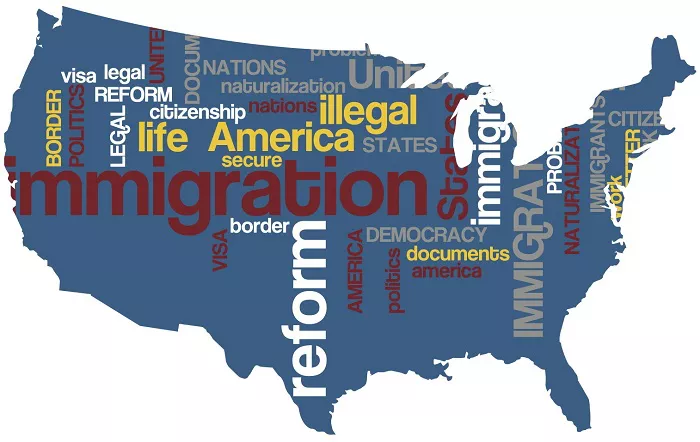Immigration law is a vital aspect of a nation’s framework, shaping who may enter, reside, and become a citizen. As global movement increases, understanding immigration law becomes increasingly crucial for individuals, families, businesses, and policymakers alike. In this article, we will delve into the complexities of current immigration law, highlighting its key components, recent changes, and its significance in the modern world.
What is Immigration Law?
Immigration law refers to national statutes, regulations, and legal precedents governing immigration into and deportation from a country. It outlines the legal rights, duties, and obligations of immigrants and defines the procedures for entering and remaining in a country lawfully. While every nation sets its own rules, international agreements can also influence national immigration policies.
The Purpose of Immigration Law
The primary purpose of immigration law is to control the flow of people across borders. Governments establish these laws to protect national security, maintain economic stability, and uphold cultural values. Immigration law also serves humanitarian purposes, offering refuge to individuals fleeing persecution and violence.
Key Components of Current Immigration Law
Current immigration law can be broken down into several major areas, each governing a different aspect of immigration and naturalization. Here’s a breakdown of the key elements:
Visa Categories
Visas are essential to lawful entry. Different categories exist for various purposes:
- Non-immigrant visas: For temporary stays such as tourism, study, or business.
- Immigrant visas: For individuals intending to live permanently, often leading to lawful permanent residency (Green Card).
Family-Based Immigration
Family reunification is a central principle. Citizens and lawful permanent residents can sponsor relatives, following specific priority levels established by the law.
Employment-Based Immigration
Employers may sponsor workers based on skill sets, economic needs, or investment contributions. Categories such as H-1B (specialty occupations) and EB-5 (immigrant investors) play key roles.
Asylum and Refugee Protections
Individuals fleeing persecution may seek asylum or refugee status. Current law provides avenues for protection based on fear of persecution due to race, religion, nationality, political opinion, or membership in a particular social group.
Naturalization and Citizenship
Immigration law outlines the process for immigrants to become citizens, typically requiring continuous residence, good moral character, English proficiency, and knowledge of U.S. history and government.
Recent Changes in Immigration Law
Immigration law is highly dynamic, reflecting political shifts, economic needs, and societal values. Some recent changes include:
Policy Shifts and Executive Actions
Executive orders have played a significant role in shaping immigration enforcement and priorities. Changes have affected areas such as Deferred Action for Childhood Arrivals (DACA), refugee admissions, and border security measures.
Public Charge Rule
Changes to the public charge rule have redefined eligibility for lawful permanent residency, making it harder for applicants who might require public assistance in the future to obtain a Green Card.
COVID-19 Pandemic Effects
The pandemic led to temporary suspensions of visa processing, travel bans, and new health-related restrictions on immigration.
Important Agencies Involved in Immigration Law
Multiple government agencies administer and enforce immigration laws:
- U.S. Citizenship and Immigration Services (USCIS): Manages the processing of visa applications, naturalization, and asylum claims.
- U.S. Immigration and Customs Enforcement (ICE): Handles immigration enforcement and deportation efforts within the country.
- U.S. Customs and Border Protection (CBP): Enforces immigration laws at borders and ports of entry.
- Department of State (DOS): Issues visas through U.S. embassies and consulates abroad.
Controversial Aspects of Current Immigration Law
Immigration is often a subject of intense debate. Key issues include:
Border Security and Enforcement
Efforts to secure borders have led to controversies surrounding wall construction, family separations, and detention conditions.
Deportations and Detentions
The expansion of deportation priorities and the conditions within immigration detention centers have raised human rights concerns among advocates and international bodies.
Legal Immigration Backlogs
Backlogs in visa processing and asylum hearings have created years-long waits for many applicants, leading to family separations and prolonged uncertainty.
How Immigration Law Affects Society
Immigration law not only affects individuals but also the broader society:
- Economic Impact: Immigrants contribute to the economy as workers, entrepreneurs, and consumers. However, debates persist about impacts on wages and job competition.
- Cultural Influence: Immigration enriches cultural diversity, bringing new perspectives, traditions, and innovations to host countries.
- National Security: Stringent immigration policies aim to mitigate security threats, though they must balance security with humanitarian obligations.
International Perspectives on Immigration Law
While this article focuses mainly on U.S. immigration law, many countries face similar challenges and debates:
- European Union: The refugee crisis and Brexit have significantly influenced immigration policy debates across Europe.
- Canada: Emphasizes a points-based immigration system favoring skilled immigrants.
- Australia: Uses a strict immigration system with offshore processing centers for asylum seekers.
Each system reflects different societal values, economic needs, and geographic realities.
Conclusion
Current immigration law is complex, constantly evolving, and deeply influential in shaping modern society. Understanding its principles, key components, and ongoing developments is crucial for anyone affected by or interested in immigration. Whether through family reunification, employment opportunities, humanitarian protections, or the pursuit of citizenship, immigration laws define pathways to new lives and new beginnings. Staying informed ensures that individuals can navigate these processes more effectively and advocate for fair and just immigration policies in the future.
Related topics:
- How Long Does It Take to Get an NVC Case Number?
- What Does Administrative Processing Mean for Non-Immigrant Visas?
- What Does Administrative Processing Mean for Immigrant Visas?


